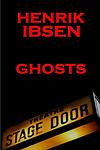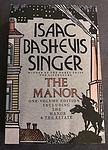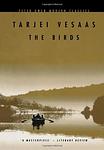The Greatest Polish, Norwegian, Russian "Fiction" Books Since 1900
Click to learn how this list is calculated.
This list represents a comprehensive and trusted collection of the greatest books. Developed through a specialized algorithm, it brings together 305 'best of' book lists to form a definitive guide to the world's most acclaimed books. For those interested in how these books are chosen, additional details can be found on the rankings page.
Genres
Countries
Date Range
Reading Statistics
Click the button below to see how many of these books you've read!
Download
If you're interested in downloading this list as a CSV file for use in a spreadsheet application, you can easily do so by clicking the button below. Please note that to ensure a manageable file size and faster download, the CSV will include details for only the first 500 books.
Download-
26. Mother by Maxim Gorky
This novel centers around a working-class Russian woman who becomes involved in revolutionary activities after witnessing the struggles and injustices faced by her son and his comrades. Despite her initial fear and hesitation, she evolves into a dedicated activist, smuggling illegal literature and participating in strikes. The narrative provides a powerful exploration of the personal and societal transformations brought about by political activism, set against the backdrop of pre-revolutionary Russia.
The 1569th Greatest Book of All Time -
27. Pnin by Vladimir Nabokov
The novel is about a Russian émigré, Timofey Pnin, who is a professor at an American college. Pnin struggles with the complexities of life, language, and American culture, while dealing with the traumas of his past in Russia. The book is a series of loosely connected episodes, filled with humor, pathos, and Pnin's endearing confusion. His struggles and triumphs in academia and his search for a home and identity form the crux of the story.
The 1569th Greatest Book of All Time -
28. First Circle by Aleksandr Solzhenitsyn
"First Circle" is a gripping narrative set in a Soviet Union labor camp during the Stalin era, where the prisoners are intellectuals and scientists. The story revolves around these individuals who, despite their grim circumstances, engage in political and philosophical debates, striving to maintain their dignity and humanity. The novel explores themes of morality, corruption, and the human spirit, providing a vivid and harrowing depiction of life under Stalinist rule.
The 1569th Greatest Book of All Time -
29. The Artamonov Business by Maxim Gorky
"The Artamonov Business" is a multi-generational saga that follows the rise and fall of a Russian family's business empire from the 1860s up to the Russian Revolution. The narrative explores the dynamics of the Artamonov family, their personal struggles, moral dilemmas, and the impact of their actions on those around them. The story also provides a critical examination of the socio-economic changes in Russia during this period, highlighting the transformation from a feudal society to a more capitalist one and the accompanying moral decay.
The 1623rd Greatest Book of All Time -
30. The Magician of Lublin by Isaac Bashevis Singer
This novel tells the story of Yasha Mazur, a talented and renowned 19th-century Jewish magician living in Poland. Yasha is a complex character, torn between his own desires and the expectations of his religious community. He leads a double life, juggling his career, his marriage, and his multiple affairs. As he grapples with his conflicting identities, Yasha is forced to confront his own moral failings and the consequences of his actions. His journey is one of self-discovery and redemption, offering a nuanced exploration of faith, love, and the human condition.
The 1720th Greatest Book of All Time -
31. The Real Life of Sebastian Knight by Vladimir Nabokov
"The Real Life of Sebastian Knight" is a novel centered around the protagonist's quest to understand and write a biography about his deceased half-brother, a famous author. However, as he delves deeper into his brother's life, he encounters numerous obstacles and confusions, including misleading information, false leads, and the challenge of distinguishing between the man and his literary persona. Ultimately, the protagonist's journey becomes a profound exploration of identity, truth, and the blurred line between fiction and reality.
The 1740th Greatest Book of All Time -
32. The Life Of Arseniev by Ivan Bunin
"The Life of Arseniev" is a poignant and introspective novel that explores the life of Arseniev, a middle-aged man grappling with the complexities of love, desire, and the passage of time. Set against the backdrop of pre-revolutionary Russia, the story delves into Arseniev's relationships with various women, his struggle to find meaning and fulfillment, and his eventual realization of the fleeting nature of human existence. With lyrical prose and a deep understanding of human emotions, the author captures the essence of a man's inner turmoil and the universal themes of love, loss, and self-discovery.
The 1770th Greatest Book of All Time -
33. Summer in Baden-Baden by Leonid Tsypkin
"Summer in Baden-Baden" is a unique blend of fact and fiction that intertwines the author's own travels to Leningrad with a reimagining of Fyodor Dostoevsky's summer in Baden-Baden, Germany. The narrative shifts between the two journeys, exploring themes of obsession, identity, and the power of literature. The author's fascination with Dostoevsky serves as a lens through which he examines his own life and experiences as a Jew in Soviet Russia, while also providing a fresh perspective on the famous Russian author's life and works.
The 1844th Greatest Book of All Time -
34. Gimpel the Fool by Isaac Bashevis Singer
"Gimpel the Fool" is a collection of short stories that portray the life of Gimpel, a simple baker who is often deceived by the people in his town. Despite the continuous deceit, Gimpel maintains his faith in humanity and never seeks revenge. Throughout the stories, the protagonist's innocence and naivety are contrasted with the harsh realities of the world, exploring themes of faith, forgiveness, and the inherent goodness of people.
The 1973rd Greatest Book of All Time -
35. The Street of Crocodiles by Bruno Schulz
"The Street of Crocodiles" is a collection of short stories set in a small town in Poland, illustrating the author's unique perspective on reality. The book portrays the narrator's father's eccentricities and his vivid, often disturbing, imagination. The stories are filled with bizarre, dreamlike imagery and metaphors, presenting a surreal and grotesque view of everyday life. The book is a profound exploration of human nature, memory, and the power of imagination.
The 1996th Greatest Book of All Time -
36. Giants in the Earth by Ole Edvart Rolvaag
"Giants in the Earth" is a historical novel that chronicles the story of a Norwegian pioneer family's struggles with the land and the elements of the Dakota Territory as they try to make a new life in America. It is a profound and accurate depiction of the trials, tribulations, successes, and failures of pioneer life, emphasizing the harsh realities of adapting to a new environment. The novel explores themes of man versus nature, cultural displacement, and the pursuit of the American Dream.
The 2024th Greatest Book of All Time -
37. Despair by Vladimir Nabokov
The novel revolves around a man who encounters his doppelgänger and becomes obsessed with the striking resemblance between them. This obsession leads him to concoct an elaborate scheme involving identity exchange and insurance fraud. As the protagonist meticulously plans what he believes to be the perfect crime, his narrative becomes increasingly unreliable, revealing his descent into madness. The story unfolds through a complex structure of layered storytelling, blending reality with the protagonist's delusions, and culminates in a darkly ironic twist that challenges the reader's perception of truth and fiction.
The 2122nd Greatest Book of All Time -
38. Novel With Cocaine by M. Ageyev
The book in question is a psychological novel set in the tumultuous period of the Russian Revolution. It follows the life of a disaffected young man who, after being expelled from school, descends into a hedonistic lifestyle in Moscow's seedy underbelly. As he indulges in romantic pursuits and the eponymous drug, his intellectual arrogance and detachment from society grow. The narrative offers a dark and introspective exploration of nihilism, addiction, and the loss of innocence, ultimately painting a portrait of a protagonist caught between the demise of old-world Russia and the rise of the Soviet Union, all while grappling with his own moral decay.
The 2193rd Greatest Book of All Time -
39. The Futurological Congress by Stanislaw Lem
In a dystopian future, the protagonist attends a scientific conference where he is exposed to a new hallucinogenic drug that transports him to a surreal and chaotic world. As he navigates through this bizarre reality, he becomes entangled in a conspiracy involving mind-altering technology, political manipulation, and the struggle for power. This satirical novel explores themes of reality, identity, and the dangers of unchecked technological advancements.
The 2251st Greatest Book of All Time -
40. The Clay Machine-gun by Victor Pelevin
"The Clay Machine-gun" is a surreal and complex novel that explores the nature of reality and illusion. The story is set in post-Soviet Russia and follows a protagonist who has multiple identities, including a poet in 19th-century Russia, a 20th-century psychiatric patient, and a 21st-century advertising executive. The narrative moves between these identities and realities, blurring the lines between them and creating a layered and philosophical exploration of Russian society, identity, and the human psyche.
The 2276th Greatest Book of All Time -
41. Satan In Goray by Isaac Bashevis Singer
Set in the 17th century, the novel explores the impact of false messianic fervor on the Jewish community of Goray, a small Polish town. After the devastating Chmielnicki massacres, the traumatized survivors find themselves drawn to the charismatic but ultimately destructive figure of Sabbatai Zevi, who claims to be the long-awaited Messiah. As the community becomes increasingly divided between believers and skeptics, the narrative delves into themes of faith, madness, and the desperate need for redemption, painting a vivid picture of a society on the brink of collapse under the weight of its own expectations and desires.
The 2279th Greatest Book of All Time -
42. The Bedbug And Selected Poetry by Vladimir Mayakovsky
"The Bedbug And Selected Poetry" is a collection of poems by Vladimir Mayakovsky, a prominent Russian poet of the early 20th century. The book features a mix of Mayakovsky's avant-garde and politically charged works, showcasing his unique style and themes of revolution, love, and the struggles of the working class. Through his powerful and dynamic verses, Mayakovsky offers readers a glimpse into the social and cultural landscape of his time, while leaving a lasting impact with his thought-provoking and emotive poetry.
The 2286th Greatest Book of All Time -
43. The Foundation Pit by Andrey Platonov
The book is a dark and satirical portrayal of the Soviet Union's early years of communism, focusing on a group of workers involved in the construction of a gigantic pit intended to lay the foundations for a utopian future. As they dig deeper, the narrative delves into the absurdities and tragedies of the Soviet system, revealing the disconnect between the lofty ideals of the revolution and the harsh realities faced by the people. The characters, ranging from disillusioned laborers to ideologically blinded officials, grapple with the meaning of progress and human purpose in a society where language and thoughts are contorted by political dogma, ultimately questioning the human cost of a forced march towards a promised paradise.
The 2376th Greatest Book of All Time -
44. Envy by Yury Olesha
The novel is a satirical exploration of the conflict between the old, pre-revolutionary generation and the new Soviet order. It centers on Nikolai Kavalerov, a man who finds himself homeless and disillusioned with the socialist society around him. He is taken in by Andrei Babichev, an ardent supporter of the new regime and the creator of the perfect Soviet food, the "Olympian sausage." Kavalerov becomes envious of Babichev's success and his revolutionary brother Ivan, leading to a psychological struggle that reflects the larger societal tensions of the time. The narrative delves into themes of identity, purpose, and the nature of envy, as characters grapple with their roles in a rapidly changing world.
The 2377th Greatest Book of All Time -
45. Selected Plays of Henrick Ibsen by Henrik Ibsen
This compilation includes a selection of plays by a renowned Norwegian playwright, who is often referred to as the father of realism. The collection showcases his talent for exploring complex human emotions, societal expectations, and moral dilemmas. The plays often feature strong female characters, a rarity for the time, and challenge the norms of the 19th-century society, making them timeless and relevant even today.
The 2411th Greatest Book of All Time -
46. August 1914 by Aleksandr Solzhenitsyn
"August 1914" is a historical novel set during the early days of World War I, focusing on the disastrous Battle of Tannenberg on the Eastern Front. The book provides a detailed portrayal of the Russian army's defeat, largely due to incompetent leadership and lack of communication. The narrative also delves into the lives of the soldiers and civilians involved, offering a broad examination of Russian society and the impending revolution.
The 2411th Greatest Book of All Time -
47. The Manor by Isaac Bashevis Singer
"The Manor" depicts the complex interplay between Jews and Polish nobility in 19th century Poland. The narrative focuses on the lives of two Jewish families, the Kalinowskis and the Dembowskis, who are tied together by marriage. As they navigate the political and social changes of the time, the characters grapple with issues of faith, tradition, assimilation and the struggle for survival. The book provides a vivid portrayal of Jewish life in Poland during a period of significant change and upheaval.
The 2454th Greatest Book of All Time -
48. The Birds by Tarjei Vesaas
"The Birds" is a poignant story about Mattis, a mentally challenged man living in rural Norway who struggles to fit into society. He lives with his sister, who is his only caretaker and connection to the outside world. Mattis's life changes when he becomes fascinated by a pair of rare birds that decide to nest near his home. The arrival of these birds and a subsequent encounter with a lumberjack disrupt the quiet routine of his life, leading to a series of events that force him to grapple with his place in the world.
The 2454th Greatest Book of All Time -
49. Ashes and Diamonds by Jerzy Andrzejewski
Set at the end of World War II, the book explores the chaotic and morally complex time in Poland as the country transitions from war to peace. The narrative focuses on a young Home Army soldier tasked with assassinating a communist leader. As he grapples with his mission, he falls in love, further complicating his loyalties and convictions. The story provides a deep examination of the personal and political turmoil experienced during this historical period.
The 2454th Greatest Book of All Time -
50. Insatiability by Stanisław Ignacy Witkiewicz
The novel is a dystopian narrative set in a future where a new Asian empire has conquered Europe. The story follows a young Polish man who, while initially indulging in hedonistic pursuits, becomes increasingly disillusioned with the world around him. As the new empire introduces a mysterious substance known as Murti-Bing pills, which create a sense of contentment and indifference in the populace, the protagonist grapples with the loss of individuality and the erosion of human spirit in society. The narrative is a critique of totalitarian regimes and the dangers of mass conformity.
The 2454th Greatest Book of All Time
Reading Statistics
Click the button below to see how many of these books you've read!
Download
If you're interested in downloading this list as a CSV file for use in a spreadsheet application, you can easily do so by clicking the button below. Please note that to ensure a manageable file size and faster download, the CSV will include details for only the first 500 books.
Download























